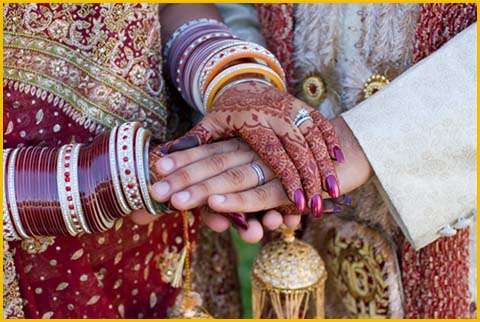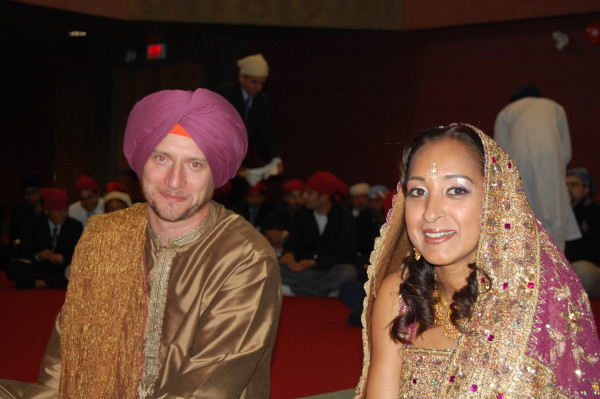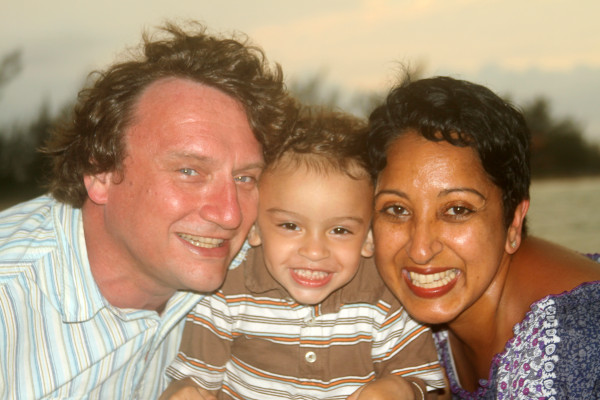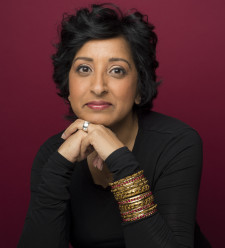

This month’s article is discussing a topic that is close to my heart – the wedding of a mixed couple. As half of a mixed couple and mother of a “whole-wheat baby”, I feel so comfortable walking down the streets of downtown Toronto where diversity is not only commonplace but celebrated. It’s encouraging to see people being respectful of each other’s cultures and eager to learn about one another… however, it’s important to understand what about your culture helps to define you and to always be true to yourself!
Dear DIDI:
I’m frantically organizing a mixed wedding (I’m Canadian and my fiancé’s family is from Bangladesh). Coming to terms with the fact that neither one of our parents were going to get their “dream wedding” for their respective child has been very emotional for me. I love my future in-laws and try to compromise so that the south-asian culture is a large part of this important day. I am however finding that the south-asian culture is always the topic of discussion during this wedding planning and our marriage in general. Being Bangladeshi and therefore doing certain things that are part of the culture seems to trump all other traditions rather than trying to find a happy medium. Am I wrong to think that it should be an equal amount of both? I have no one to discuss this with as my friends don’t quite understand and I don’t want to upset my family and make them think differently of my in-laws. I feel like being Canadian doesn’t mean much compared to being South-asian and therefore my traditions don’t seem to hold any importance. Can I push for more of a compromise or do I bite my tongue?
MIXED UP
Dear MIXED UP:
If you decide to bite your tongue now be prepared to do so forever more. As the bride you (and your husband) must always have a say in the wedding. And remember it is a prelude for the marriage, so if you don’t have your say in the what takes place right from the beginning, it will be that much more difficult to be heard after you get married. Weddings are emotional and stressful occasions – period! It doesn’t really matter if both individuals are from the same culture or not, they just are. You just happen to be in a situation where it is a bit more overwhelming than usual since you are not familiar with the Bangladeshi traditions and the culture. You already said that neither of your parents were going to get their “dream wedding” for their children but they can get a wedding they will dream and talk about for years to come!
First you need to talk to your fiancé to make sure that both of you are on the same page – are you starting a life together that will be a blend of both your cultures or is he expecting to be the dominant culture and therefore, you will be the one doing the adjusting and making the compromises. It is important for you to establish this up-front since this will affect how you approach living your life together. I would recommend that if you do have an opportunity that you attend a Bangladeshi wedding before you have your own ceremony – so you can get an understanding of what takes place and what you can expect. Also, you might want to form an advisory committee – one person from your family and one from your fiancé’s. They would need to be influencers in the family, someone that could be the go-between for you two and the parents. You could ask them to make 3 suggestions of traditions that each family would like to incorporate into your wedding. These helpers will help you understand the various parts of the Bangladeshi ceremonies, but you can put your personal stamp on it. This way they have a say but ultimately the decision is yours. As you start your life together, get used to the word collaboration – an apt description of your mixed union!
As you know, I am in a mixed marriage too. I decided early on that there would be a few different ceremonies to make sure that the two of us got what we wanted. The first ceremony was at the justice of the peace and just for us. The second one was in Vancouver and a Sikh ceremony in the Gurdwara. My mom had waited a long time for me to finally get married, so it was everything that she wanted – we just had to show up. There was a bit of a twist though – it was very small (I have a large family, so it was still 150 people) and in the afternoon (most are in the morning) so we could go straight to the reception afterwards. The third was supposed to have a celebrant conducting a non-denominational ceremony to celebrate our union and have a big party with all our friends in TO. We had pictures on the walls of the previous two weddings and our Indian wedding outfits on mannequins to share with our guests. It didn’t quite work out that way… it was actually a glorified wedding reception instead although noone seemed to notice or mind. We now have 3 “wedding” anniversaries to choose from and lots of memories just for us!
As South Asians face the delicate balancing act of paying homage to their culture while striving to build their life in a Western world, there will always be challenges as we adapt different traditions and ceremonies to make them our own. It’s not always easy and occasionally all you need is someone to confide in, ask questions of or to learn from… a coach, mentor and friend. A Dear DIDI. I look forward to hearing from and being here for you!
By Kulbinder Saran Caldwell, CPC
Twitter: @DearDIDI_KSC www.reallifetalks.com


